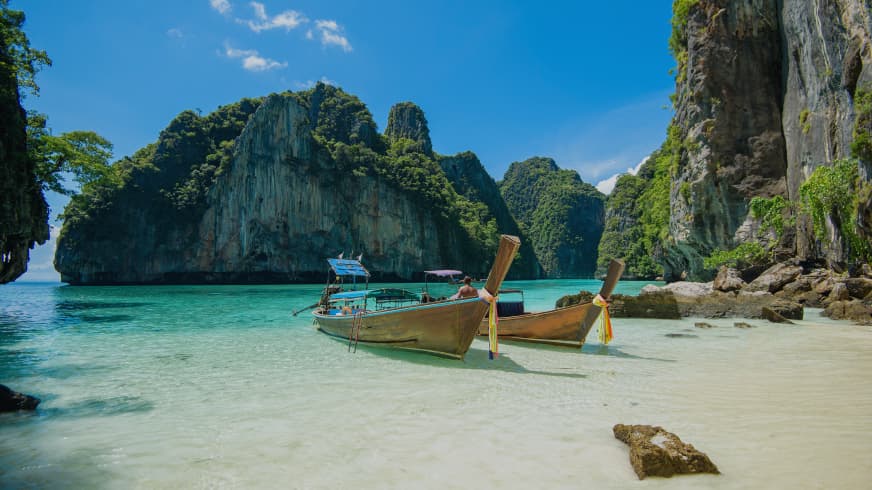The world of immigration is changing rapidly as we move through 2025. Gone are the days when a one-size-fits-all approach to visas was enough. Now, countries around the globe are rolling out specialized visa programs designed to tackle specific challenges and grab hold of new opportunities. These visas are popping up in response to big shifts in how we work, where we live, and what skills are in high demand.
Think about it – just a few years ago, the idea of a visa for digital nomads or climate refugees might have seemed far-fetched. But today, these are real options for people looking to move abroad. Countries are getting creative, using visas as a tool to attract the right kind of talent, fill gaps in their workforce, and even address pressing global issues like climate change. It’s a whole new ball game, and it’s changing the way people think about living and working in different parts of the world.
Why Are Specialized Visas on the Rise in 2025?
The surge in specialized visas isn’t happening by chance. It’s a direct response to several big trends shaping our world right now:
- Skills Shortages: Many countries are struggling to find enough workers in key areas. Healthcare, tech, and engineering are feeling the pinch, so governments are creating visas to bring in the talent they need.
- Remote Work Revolution: The pandemic changed how we work, and that change is here to stay. Digital nomad visas are a nod to this new reality, letting people work from pretty much anywhere.
- Climate Challenges: As climate change impacts more communities, some countries are stepping up with visas for people displaced by environmental issues.
- Aging Populations: Many developed countries face a demographic crunch. They’re using visas to bring in younger workers and care professionals to support aging populations.
- Innovation Push: In the race to stay competitive, countries are vying for top minds in science, tech, and the arts. Special visas for these high-achievers are becoming more common.
- Regional Development: Some areas are struggling while cities boom. Visas that encourage people to settle in less populated regions are part of the solution.
These specialized visas show how immigration policies are adapting to real-world needs. They’re more targeted, more flexible, and designed to solve specific problems or grab particular opportunities.
Specialized Visas: Emerging Trends and Opportunities
Skilled Worker Visas
Skilled worker visas aren’t new, but they’re evolving. Countries are getting smarter about how they attract talent. Take Canada’s Express Entry system, for example. It uses a points-based approach to fast-track applications from workers with in-demand skills. Australia’s doing something similar with its Skilled Independent visa. These programs are constantly updating their lists of needed occupations, making sure they’re in sync with what the job market actually needs.
Digital Nomad Visas
The rise of digital nomad visas is one of the biggest shifts we’re seeing. Countries like Croatia, Estonia, and Barbados are leading the charge. These visas let remote workers set up shop for months or even years, as long as they have a steady income from abroad. It’s a win-win – nomads get to experience life in a new country, and local economies get a boost from their spending.
Health and Care Worker Visas
With aging populations in many developed countries, health and care worker visas are becoming crucial. The UK’s Health and Care Worker visa is a prime example. It offers a faster, cheaper route for qualified health professionals to work in the NHS. Similar programs are popping up in countries like Japan and Germany, where the need for care workers is particularly acute.
Climate-Related Visas
Climate-related visas are new on the scene, but they’re gaining traction fast. New Zealand made headlines when it announced plans for a climate refugee visa program. While that specific plan is still in the works, other countries are exploring similar ideas. These visas could offer a lifeline to people forced to move due to rising sea levels, extreme weather, or other climate-related issues.
Global Talent Visas
Countries are pulling out all the stops to attract top-tier talent. The UK’s Global Talent visa and Australia’s Distinguished Talent visa are great examples. These visas often come with perks like fast-track processing or the ability to bring family members along. They’re aimed at leaders in fields like science, engineering, and the arts – people who can really drive innovation and growth.
Regional and Remote Settlement Visas
To combat overcrowding in cities and boost development in other areas, some countries are using visas to encourage settlement in specific regions. Australia’s Regional Sponsored Migration Scheme and Canada’s Rural and Northern Immigration Pilot are good examples. These programs often offer easier pathways to permanent residency for those willing to live and work in designated areas.
| Visa Type | Key Features | Target Audience | Notable Countries |
| Skilled Worker | Points-based system, occupation lists | Professionals in high-demand fields | Canada, Australia, UK |
| Digital Nomad | Long-term stay, work remotely | Remote workers, freelancers | Estonia, Croatia, Barbados |
| Health and Care Worker | Fast-track processing, sector-specific | Healthcare professionals | UK, Germany, Japan |
| Climate-Related | Humanitarian focus | Climate refugees, eco-conscious migrants | New Zealand (proposed) |
| Global Talent | Fast-track, family inclusion | High achievers in science, arts, sports | UK, Australia |
| Regional Settlement | Incentives for non-urban areas | Skilled workers open to regional living | Australia, Canada |
How Do You Choose the Best Visa for Your Situation?
Assess Your Skills
Start by taking a good, hard look at what you bring to the table. What are your qualifications? What’s your work experience like? Different visas have different requirements, so you need to know where you stand. If you’re a software developer with five years of experience, for instance, you might be a great fit for a skilled worker visa in a country with a tech shortage.
Understand Visa Requirements
Each visa comes with its own set of rules and requirements. Some might ask for language tests, others for proof of funds. It’s crucial to dig into these details before you start applying. For example, if you’re eyeing a digital nomad visa, you’ll probably need to show that you have a stable income from overseas sources.
Consider Long-Term Goals
Think about where you want to be in five or ten years. Are you looking for a short adventure or a permanent move? Some visas are stepping stones to permanent residency or even citizenship, while others are strictly temporary. If you’re hoping to put down roots, look for visas that offer clear pathways to permanent status.
Research Tax Implications
Taxes can get tricky when you’re living abroad. Different countries have different rules, and you might end up owing taxes in more than one place. This is especially important for digital nomads or freelancers. You don’t want to end up with a surprise tax bill, so do your homework or consult with a tax professional who understands international tax law.
Explore Regional Opportunities
Don’t just focus on the big cities. Many countries offer extra incentives for people willing to live in less populated areas. These regional visas often come with perks like faster processing times or easier pathways to permanent residency. Plus, you might find that the cost of living is lower and the quality of life is higher in these areas.
To Sum it Up
The world of visas is changing fast, and it’s opening up new doors for people looking to live and work abroad. Whether you’re a tech whiz, a healthcare hero, or someone looking for a change of scene, there’s probably a specialized visa out there that fits your needs.
At Visaworld, we’re excited about these new opportunities, and we’re here to help you navigate them. Our team stays on top of the latest visa trends and requirements, so we can guide you to the best option for your situation. Ready to explore your options? Get in touch with us. We’ll help you turn your dreams of living abroad into reality, with expert advice every step of the way.
FAQs
How do countries determine which specialized visas to introduce?
Countries typically introduce specialized visas based on a combination of economic needs, demographic challenges, and strategic goals. They analyze labor market data, consult with industry leaders, and consider long-term economic projections. For example, a country facing a shortage of healthcare workers might introduce a specialized medical visa, while another aiming to boost its tech sector might create a startup visa for entrepreneurs.
Can I switch between different types of specialized visas once I’m in a country?
The ability to switch between visa types varies greatly depending on the country and the specific visas involved. Some nations allow in-country visa changes, especially if you’re moving to a more skilled or in-demand category. Others might require you to leave and apply from outside. It’s crucial to check the specific rules for your situation, as violating visa conditions can have serious consequences.
How are specialized visas affecting local job markets and economies?
Specialized visas can have significant impacts on local economies. They often help fill critical skill gaps, potentially boosting productivity and innovation. However, they can also raise concerns about competition for jobs. Many countries try to strike a balance by setting quotas or requiring employers to prove they can’t find local workers before hiring internationally. The long-term effects are still being studied, but early indicators suggest these visas can stimulate economic growth when implemented thoughtfully.
What role does technology play in the rise and management of specialized visas?
Technology is revolutionizing how specialized visas are managed and processed. Many countries are implementing AI-powered systems to screen applications, verify documents, and even predict labor market needs. Blockchain technology is being explored for secure storage of visa and identity information. For applicants, online portals and apps are making it easier to track applications and update information. This tech-driven approach is making visa processes faster and more efficient, though it also raises questions about data privacy and algorithmic bias.
How are geopolitical events and international relations influencing specialized visa policies?
Geopolitical factors play a significant role in shaping specialized visa policies. Trade agreements, diplomatic relations, and global events can all impact which visas are offered and to whom. For instance, Brexit led to changes in how EU citizens can work in the UK, prompting new visa categories. Similarly, tensions between nations can lead to restrictions or additional scrutiny for certain visa applicants. Countries also sometimes use visa policies as soft power tools, offering favorable terms to nations they want to build stronger ties with.




